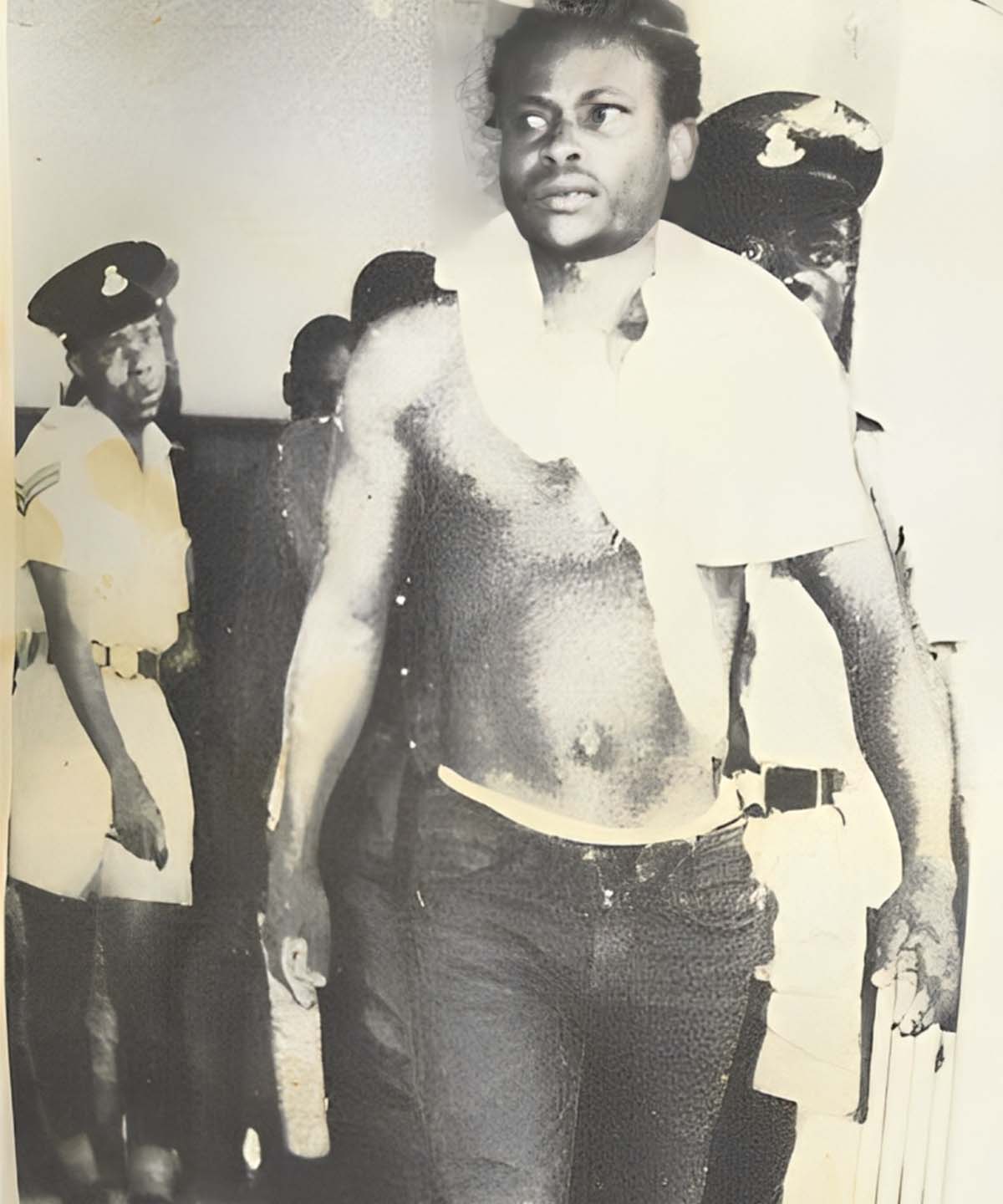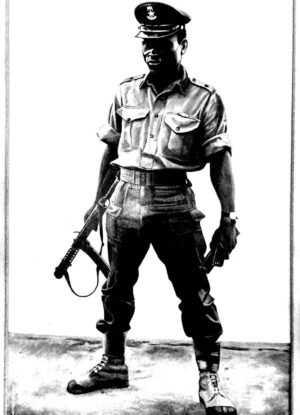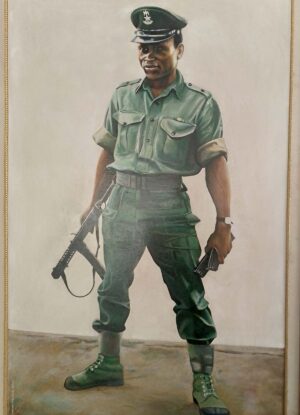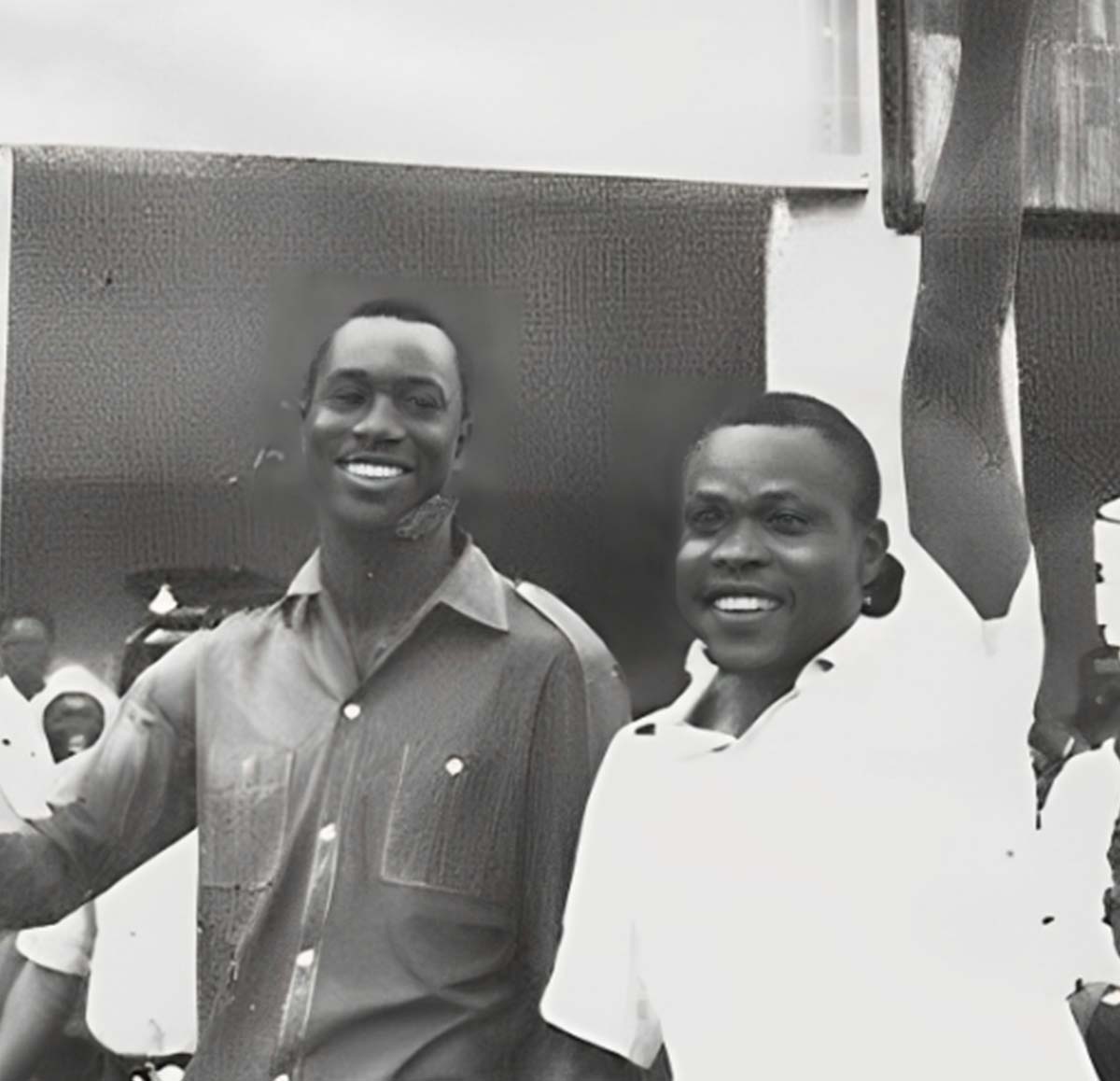
Isaac Adaka Boro was born on September 10, 1938, in the humid creeks of Oloibiri, now located in Ogbia Local Government Area of Bayelsa State. He was the son of Pepple Boro, a school headmaster.
Boro excelled academically, earning his First School Leaving Certificate with distinction and later passing the West African School Certificate Examination at Hussey College, Warri, in 1957. That year, he achieved the best school certificate results in the college.
After completing his secondary education in Warri, Delta State, Boro began working as a teacher before joining the Nigerian Police Force in 1961.
He later secured a scholarship from the Eastern Regional Government to study Chemistry at the University of Nigeria, Nsukka (UNN).
Boro, who reportedly admired Prime Minister Abubakar Tafawa Balewa, criticized the military coup that led to the Prime Minister’s assassination. He expressed disapproval of Major-General Johnson Aguiyi-Ironsi’s emergence as Head of State, which he viewed as undermining Nigeria’s federal structure and constitution. He described the coup as a direct violation of the principles agreed upon by the country’s founding fathers.
In response to these developments, and convinced of the need for change, Boro declared the secession of the Niger Delta from the rest of Nigeria a few weeks after the coup.



Niger Delta Revolt
Isaac Adaka Boro established the Niger Delta Volunteer Force (NDVF), composed of young men from various Ijaw clans, who were trained in a militia camp behind his father’s compound in Kaiama, Bayelsa State. In his address to supporters, Boro emphasized their mission to highlight the oppression and neglect faced by the Niger Delta region.
On February 23, 1966, shortly after the January military coup and at the age of 27, Boro declared the Niger Delta’s secession from Nigeria, naming the new entity the Niger Delta Republic.
Leading approximately 150 volunteer fighters, Boro launched a guerrilla campaign against the federal government. For 12 days, the NDVF resisted federal forces before being subdued by the Nigerian Army under Major-General Johnson Aguiyi-Ironsi, with support from Eastern Region Governor Chukwuemeka Ojukwu. Interestingly, Ojukwu would later lead his own secessionist movement by declaring the Republic of Biafra in May 1967.

